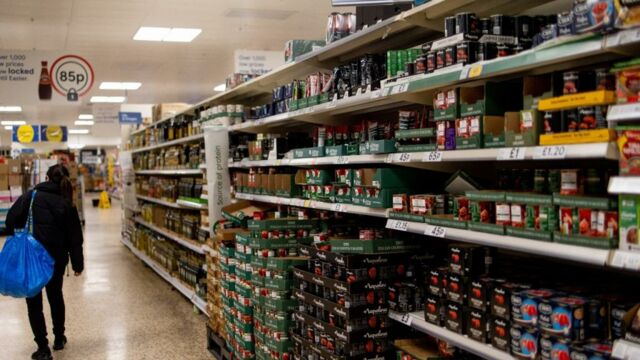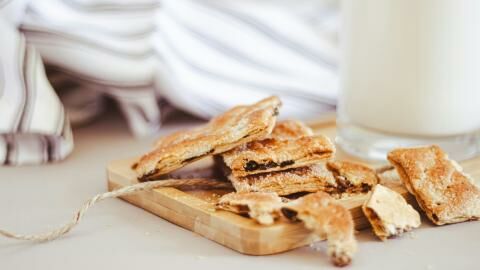In the run-up to Christmas, everyone is full of anticipation: will everyone like my presents, will we have a white Christmas, will everyone get along? You want your focus to be on your friends, family, the tree and the overall festivity. One that people tend not to worry about is whether their foody festive favourites will contain moth eggs.
Discover our latest podcast
Unfortunately, this is a real concern this year for shoppers at Tesco. The massive supermarket chain has announced that their Apple & Cranberry Stuffing Mix is being recalled over the possible presence of moths. Here are the items affected, how to spot months, and how to get rid of them.
The affected items
An alert on the Food Standards Agency website details the exact products to watch out for. These are the 130g tubs of the stuffing, which have an expiry date of September 2024. The vegetarian item has been declared ‘unfit for human consumption’ due to the possible presence of the insect.
Tesco is recalling the product, having issued a notice informing customers of the issue. The retailer is urging shoppers to return the item to the shop where they bought it. You will be given a full refund - and in good time for Christmas!
What are the dangers of moths?
Pantry moths are commonly brought into your home from a shop or a nearby infestation. They are not seriously dangerous, but are a real nuisance to get rid of. They are small winged insects that are usually grey, black or brown and sometimes have a zig-zag pattern on their back. They lay their eggs in common dried goods like grains, beans, flour and nuts. Unfortunately, their larvae are capable of chewing through cardboard and plastic, so even if your food is kept in shut packages it is not necessarily safe.
According to The Old Farmer's Almanac:
You may find larvae and pupae tucked away in door hinges, backs of door knobs, and corners of wire baskets; underneath shelves, and around the edges of jar lids, cans, and non-food items also stored in your pantry or cupboard.
If you spot a moth, any larvae, or a web-like material in your pantry or in dried goods, then you should act: toss away any infested items and clean all your storage and containers with hot soapy water. Remember to take your bins out as soon as you are finished emptying your infected food - otherwise you risk re-infecting your home! From that point on, store your food in airtight containers and remain vigilant. Females can lay up to 500 eggs at a time, so the infestation may take some time to fully remove from your home. You may need to repeat the above steps.
This is not the sort of guest you want to surprise you over Christmas as you sit down to eat your carefully prepared meal.
Read more:
⋙ Madrid under 'black level’ alert over Christmas crowding
⋙ Christmas travel chaos for roads and trains, here’s when it will peak
⋙ Christmas: This is the worst present to give your loved-ones, according to science
Sources used:
Metro: Tesco recalls Christmas dinner favourite because it might have moths inside















